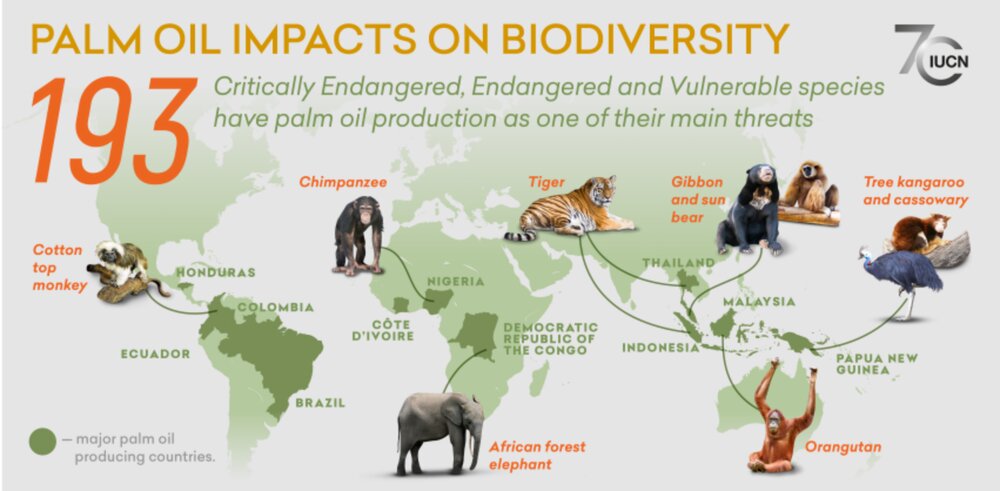SOURCE: Phys.org
DATE: October 23, 2020
SNIP: In July, Indonesia’s state-owned oil company, Pertamina, produced its first batch of biofuel made entirely from palm oil.
Called D100, this “green diesel” is part of Indonesia’s strategy to promote what is claimed to be environmentally friendly fuel.
Indonesia began mandating a 30% mix of biofuel in gasoline in January 2020. The plan is to increase the amount of biofuel used in the country.
The policy will increase demand for palm oil—the country’s number one agricultural export. The government has positioned the program as a way to lower fossil fuel imports and greenhouse gas emissions.
But it will worsen deforestation, increase greenhouse gas emissions and lead to a loss of biodiversity. It will also lead to more social conflicts.
Research shows the palm oil industry is a major driver of deforestation, greenhouse gas emissions and loss of biodiversity.
Palm oil plantations produce more oil per unit of land than alternative crops. A report by the European Union concluded palm oil is associated with higher levels of deforestation than other biofuels.
In any event, the biodiesel policies aim to replace fossil fuels. Thus, the comparison should be with fossil fuels, not other kinds of vegetable oil.
Studies have found palm oil-based biodiesel creates more carbon emissions than fossil fuels.
Indonesia’s 94.1 million hectares of forests are particularly rich in both biodiversity and carbon content. Peatlands are also very rich in carbon. When land is converted to palm oil plantations, carbon is released into the air. In 2014, more than half of Indonesia’s carbon emissions came from forest and land-use changes.
As production of palm oil increases every year—from 26 million metric tons in 2012 to almost 46 million metric tons in 2016—so has forest clearing. In Borneo, 50% of all deforestation between 2005 and 2015 was related to oil palm development on the island.
In 2018, Indonesia banned new oil palm plantations.
However, data from the Ministry of Agriculture show the area of plantations expanded from 14 million hectares in 2018 to more than 16 million in January 2020.
According to environmental group Sawit Watch, the total area of oil palms is more than 21 million hectares.
Civil society groups, along with the industry and the Roundtable on Sustainable Palm Oil (a multistakeholder initiative), have expressed doubt about the effectiveness of the ban. They say it has too many loopholes and not enough transparency.
For example, more than 80% of the Indonesian rainforests, mangroves and peatlands most vulnerable to being cleared for palm oil production are still unprotected by the ban.
According to Sawit Watch, 55% of all plantations are in the hands of 30 large business groups. They are part of a well-connected business elite that, in the past, had very good access to land (through corruption and political patronage). As long as land is available and businesses are able to access it rather cheaply, they are likely to continue expanding the plantations.

